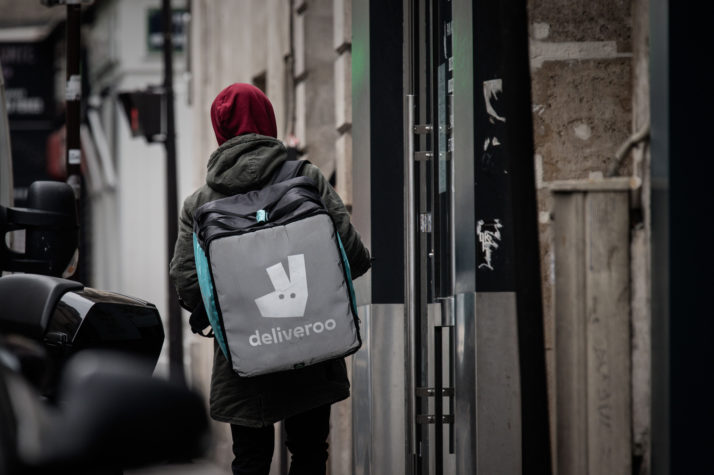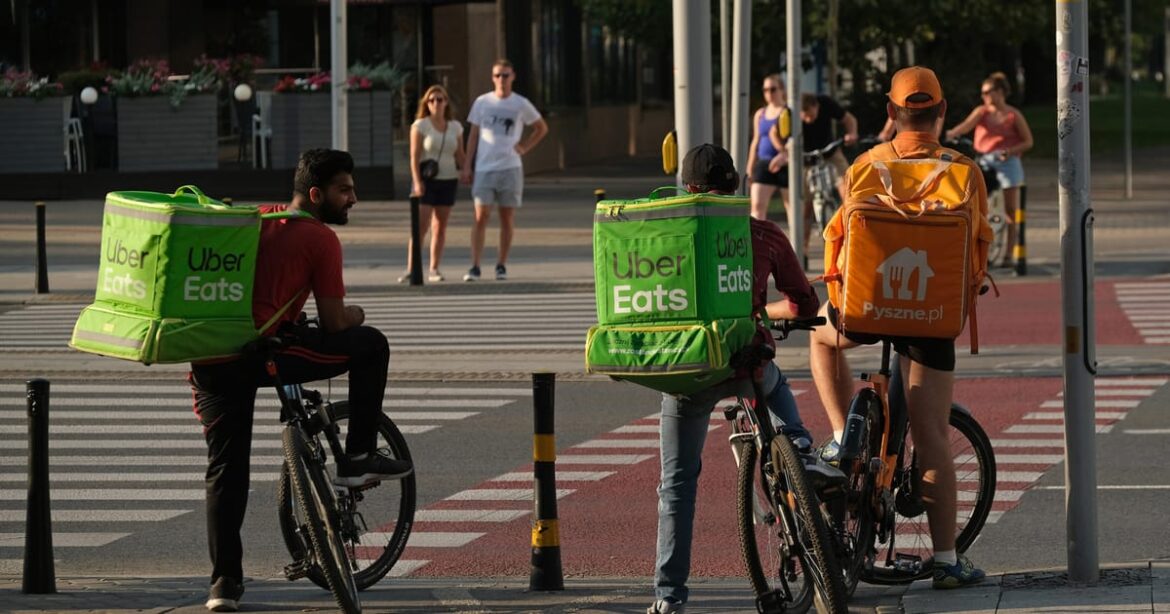De Stefano called it a “pirate” agreement, as it has been done with a smaller union which is not representative enough. “This doesn’t bring legal certainty. If [Assodelivery] want it, they should negotiate with representative unions,” De Stefano said.
UGL’s status as a representative union could decide if the agreement is legitimate. The law says “the comparatively most representative trade unions and employers organizations” can reach an agreement. While delivery companies believe UGL qualifies, the other unions don’t.

Deliveroo is one of the food-delivery firms included in the coalition | Philippe Lopez/AFP via Getty Images
UGL is not one of Italy’s three big unions: the Italian General Confederation of Labour (CGIL), Italian Confederation of Workers’ Trade Unions (CISL) and Italian Union of Labour (UIL). None of the three have an agreement with delivery companies (though Di Maio tried and failed to broker one between CGIL, the largest, and Assodelivery).
UGL says it has 2 million members, but it is unclear how many are food delivery workers. The union did not respond to POLITICO’s request for comment.
The union also has far-right affiliations that further isolate it from other unions and labor activists. UGL’s predecessor CISNAL was close to Italy’s neofascist Italian Social Movement.
Today UGL has close ties to the far-right League party. Its former Deputy Secretary-General, Claudio Durigon, was a former deputy labor minister and member of the League, while its current Secretary-General, Paolo Capone, supported the party, which belongs to the far-right Identity and Democracy European Parliament group, in last year’s EU elections, pushing to strip Brussels of its competences.

